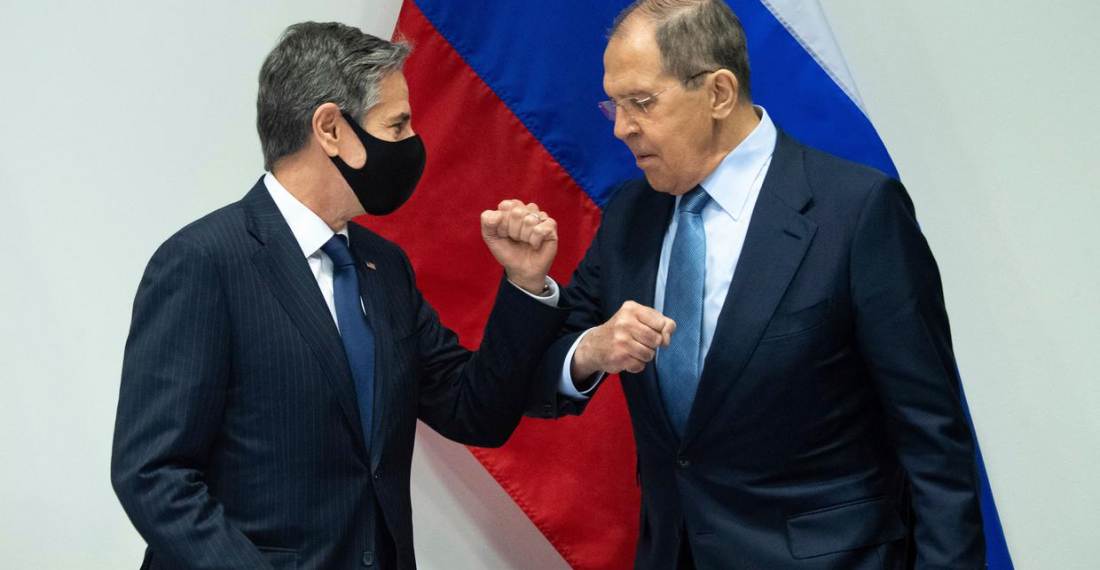US Secretary of State Antony Blinken and Russian Foreign Minister Sergei Lavrov approached their first face-to-face meeting, which took place in Iceland on Wednesday (19 May) with caution, and gently started getting to know each other. The two senior diplomats have many more meetings in front of them as they try to adjust US-Russia relations.
In their first meeting, they discussed a desire to find ways to work together and advance areas where there are mutual interests – a warmer tone than relations between the two nuclear-armed powers in recent years.
Their meeting was foremost a preparation for the summit between US President Joe Biden and Russia's President Vladimir Putin next month.
The two top diplomats shook hands before the cameras and even shared a laugh over the pack of press assembled for their meeting. While their diplomatic niceties paper over deep differences and a real low point in US-Russian relations, the possibility of a Biden-Putin meeting seems to have both sides interested in resolving some issues.
After the meeting, Lavrov called the talks with Blinken "constructive".
"The conversation seemed to me constructive. There is an understanding of the need to overcome the unhealthy situation that developed between Moscow and Washington in previous years".
Moscow confirmed its readiness to hold the dialogue on strategic stability with the US and to discuss all aspects and factors influencing it, Washington did not reject such a concept, Russian Foreign Minister noted.
"Today we confirmed our proposal to start a dialogue, considering all aspects, all factors affecting strategic stability: nuclear, non-nuclear, offensive, defensive. I have not seen a rejection of such a concept, but experts still have to work on it," he said.
A readout of the meeting by the US State Department was somewhat more cautious:
"Secretary of State Antony J. Blinken met today with Russian Foreign Minister Sergey Lavrov on the margins of the Arctic Council Ministerial. The Secretary noted that the United States sought a more stable and predictable relationship with Moscow. To that end, Secretary Blinken and Foreign Minister Lavrov discussed Russia’s Arctic Council Chairmanship and the importance of cooperation given our shared stake in the region. The Secretary also reiterated President Biden’s resolve to protect U.S. citizens and act firmly in defense of U.S. interests in response to actions by Russia that harm us or our allies. The Secretary made clear that Russia should release American citizens Paul Whelan and Trevor Reed so they can return home to their families.
"Secretary Blinken raised our deep concerns regarding Russia’s continued military deployments in and near Ukraine, its actions against VOA and Radio Free Europe/Radio Liberty, and the health of Aleksey Navalny and the repression of opposition organizations, among other issues.
"The Secretary underscored the imperative of ensuring humanitarian access for the people of Syria, while they also discussed regional issues, including finding a long-term political solution to the conflict between Armenia and Azerbaijan. They also discussed areas in which both of our peoples could benefit from sustained and enhanced cooperation, including Afghanistan, strategic stability, and curbing Iran and the DPRK’s nuclear programs. The Secretary and the Foreign Minister committed to continued discussions going forward."







